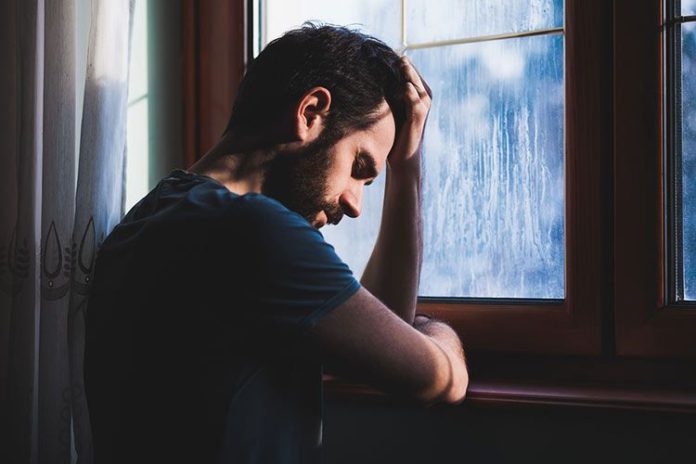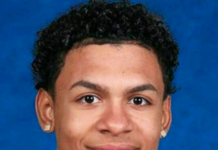The media seems to regurgitate the same-old machismo narrative over and over, and no one seems to notice. At least, box office and television ratings doesn’t seem to suggest that. Through countless movies, series, and advertisements, we learn that a man is only a man if he is distinguishably so. He must be able to wield a gun, smoke a cigarette from the corner of his mouth, and walk away from explosions without looking back, right? Besides resembling a G.I. Joe on steroids, he’s the epitome of strength, courage, with beautiful young women being his sole weakness. The list of stereotypical male behavior and characteristics goes on and on, solidified by the personages of James Bond and Mission Impossible’s Ethan Hunt. Which begs the question–what about the male narratives that aren’t centered around sex, money, and drugs? Or the male characters that refrain from anger-fueled killing, justified by good looks and a killer set of abs? Recent studies show that body image disorders and self esteem issues are linked to social pressures to acquire traits typical of the cinemagraphic alpha male, along with hyper-masculine commercial imagery. Ironically enough, popular culture continues to feed into the insatiable desire to conform to such standards, despite the negative backlash.
According to a 2014 study published in JAMA Pediatrics, data shows a growing concern among young men to obtain the ideal male physique, similar to that of their favorite TV stars and heroes. Approximately 18 percent of participants, which amounted to 5,527 males were “extremely concerned for their weight and physique.” Another 7.6 percent of young males were “very concerned about muscularity” and were willing to resort to dangerous methods to obtain an ideal body. This cultural fixation on being exquisitely fit also feeds into a larger, less discussed problem, of male eating disorders. According to findings by Mirror-Mirror Eating Disorder Help, 2.4 and 3.6 million men suffer from eating disorders today. Meaning men make up a significant portion of the 20% of people who die annually, due to health complications associated with eating disorders but are effectively silenced due to stereotypes that men shouldn’t complain.
So what is left to do, in a world where sex sells and the procurance of mental health and body satisfaction does not? Staging a boycott against The Rock’s latest film or simply refusing to pay for a pair of underwear may be a start, but it doesn’t quite solve the problem.
The true solution lies in a shift in the way we value and think about men who are not characteristically hyper-masculine. Through the success of films like Moonlight and Call me by your name, the impact of such narratives is one that was felt by all, and are clear examples of the importance of diversity.
Wildly successful trans model and LGBTQ activist Andreja Pejic, can testify to this, as even the most attractive of fashion models face gender policing. Previous to adopting female pronouns and undergoing gender reassignment surgery in 2014, Pejic was once very public about her role in diversifying the fashion industry, as one of the world’s most recognized androgynous male models. Her feminine features and once boyish physique captured the eyes of fashion labels and agencies, who believed that Pejic’s unique beauty showcased the very real presence of gender fluid individuals.
“Andreja had an extraordinary career as a male model, often modeling female clothes,” said Gene Kogan, co-director of the men’s division at DNA Model Management “She pulled it off. It [her career as a male model] opened a lot of eyes and made people see things from a new perspective.”
This new perspective– later recognized as the “body positive” movement — eventually became the catalyst of 30-year-old Arcadio Del Valle’s, modeling career. Del Valle proudly weighs a little over 400lb, and uses his prevalence to change stigmas attached to full-figured people, as well as those different from the machismo norm. Despite criticism that he is seeking to promote obesity as opposed to self-love and confidence, Del Valle walked the runway during 2016’s Fashion Week and is continuing to set trends on and off the runway, as a fashion and beauty influencer on social media.
Several other movers in the body positive space include Instagram sensations Kelvin Davis, Robert Somerset, and IMG model Zach Miko–who became the first “brawn” or full-sized male talent to be signed to a major agency.
“ I hope that young men get to walk into any store, put on a pair of pants, and look good and feel good wearing them no matter what size they are,” Miko said to Teen Vogue, hoping to encourage a future generation of aspiring models. “ I feel like that will have a ripple effect that will pulse not just through the fashion industry, but the psyche of every man and woman in our country. An effect of positivity.”










